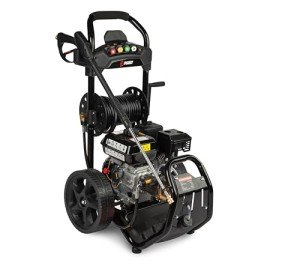The Ultimate Guide to UK Powertools: Empowering DIY Enthusiasts and Professionals Alike
The landscape of home enhancement and building in the United Kingdom has altered dramatically in the last few years. With an ever-growing market for power tools, both specialists and DIY enthusiasts now have a wide variety of equipment choices to choose from. UK powertools have ended up being important to enhancing efficiency, productivity, and safety on building sites and in home restoration tasks. This post checks out the various types of powertools offered in the UK, their applications, how to select the ideal ones, and responds to some often asked questions.
Types of Powertools Available in the UK
UK powertools can be broadly classified into two categories: corded and cordless tools. Each type has its own applications, strengths, and weak points.
Corded Powertools
Corded tools are powered through an electrical outlet and are understood for their constant power supply. They are typically used for more extensive tasks that require extended usage. Some common types of corded powertools include:
Drills
- Effect Drills: Effective for drilling into hard materials like concrete and masonry.
- Hammer Drills: Suitable for professional and industrial jobs, supplying high torque.
Saws
- Circular Saws: Ideal for making fast, straight cuts in various products.
- Miter Saws: Perfect for accurate angled cuts.
- Table Saws: Excellent for making long, straight cuts quickly.
Sanders
- Belt Sanders: Suitable for large surface area areas.
- Orbital Sanders: Great for fine ending up.
Grinders
- Angle Grinders: Versatile tools for cutting, grinding, and polishing tasks.
Cordless Powertools
Cordless powertools run on batteries, making them more portable and flexible for tight spaces. Nevertheless, their efficiency can decrease as battery life diminishes. Common cordless powertools include:
Drills
- Cordless Drills: Versatile for numerous drilling applications.
- Cordless Impact Drivers: Specifically developed for driving screws.
Saws
- Cordless Circular Saws: Portable for cutting in various job websites.
- Reciprocating Saws: Ideal for demolition and rough cuts.
Attaching Tools
- Nail Guns: Perfect for securing wood components without manual effort.
Other Tools
- Cordless Leaf Blowers: Useful for outdoor cleanup jobs.
Table of Common UK Powertools
| Type of Tool | Corded | Cordless | Suitable Applications |
|---|---|---|---|
| Drills | Impact drill, Hammer drill | Cordless drill, Impact chauffeur | Drilling holes and driving screws |
| Saws | Circular saw, Miter saw, Table saw | Cordless circular saw, Reciprocating saw | Cutting wood, metal, and other products |
| Sanders | Belt sanders, Orbital sanders | Cordless sanders | Smoothing surfaces and preparing products for completing |
| Grinders | Angle grinders | N/A | Cutting and completing metal, masonry, and other products |
| Fastening Tools | N/A | Nail guns | Attaching wood or other materials |
How to Choose the Right Powertools
Choosing the right powertools includes thinking about different factors such as task requirements, spending plan, and individual choices. Here are some essential tips for choosing the right tools:
1. Recognize the Project Requirements
- Figure out the kind of jobs you'll be performing: drilling, cutting, grinding, sanding, or attachment.
- Comprehend the products you will deal with, as some tools are much better fit for specific materials.
2. Consider Power Requirements
- For larger tasks, a corded tool may offer continual power.
- For movement and ease of use in different locations, consider cordless options, remembering battery life.
3. Analyze Tool Features
- Try to find ergonomic styles, weight, and balance, as these can affect convenience throughout extended usage.
- Guarantee the tool uses safety functions, such as automatic shutoff or defense from overheating.
4. Research Study Brand Reputation
- Investigate brands understood for dependability, customer care, and warranty offerings.
5. Budgeting
- Develop a spending plan before exploring choices. While purchasing premium-grade tools may be sensible for professionals, DIYers might discover mid-range tools adequate for their needs.
FAQs about UK Powertools
Q1: What safety gear should I wear when using powertools?A1: Always use suitable safety equipment, including safety goggles, gloves, ear defense, and dust masks.
Q2: How can I keep my powertools?A2: Regular maintenance consists of cleansing, lubricating, and inspecting for wear on parts. Always refer to the producer's standards for specifics.
Q3: Are corded powertools better than cordless?A3: It depends upon the task. Corded tools provide constant power, while cordless tools provide mobility. Select the type that suits your task best.
Q4: What are some vital powertools for a newbie?A4: Beginners ought to consider important tools like a cordless drill, circular saw, sander, and a cordless screw weapon.
Q5: Where can I buy UK Powertools?A5: Powertools can be purchased at hardware stores, online merchants, or specialty tool shops. Always compare Tools Online Store and product reviews before buying.
As the need for home improvement and building and construction continues to grow, understanding UK powertools is vital for those wanting to undertake any renovation or building work. From corded to cordless options, there is a tool offered for every job, each created to improve work and improve safety and performance. By identifying job requirements, considering power needs, and investigating trusted brands, both DIY lovers and specialists will be fully equipped to tackle their next huge task with confidence. Always remember to focus on safety and correct tool maintenance to ensure that your powertools last and perform optimally for years to come.

